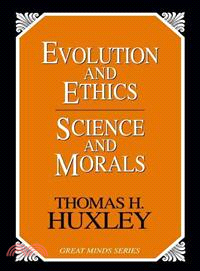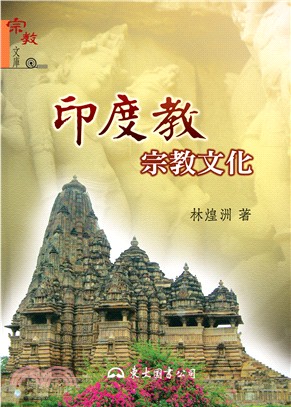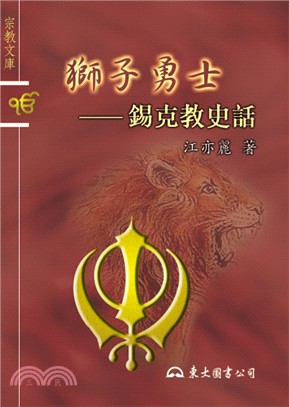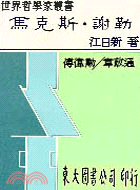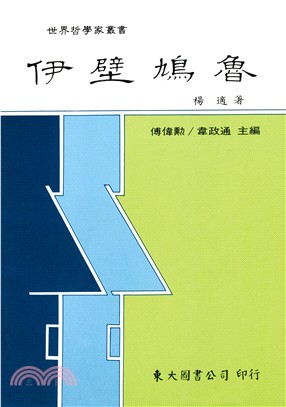相關商品
商品簡介
作者簡介
商品簡介
These two essays by the famous 19th-century champion of Darwin’s theory of evolution tackle a subject that is still a major focus of ethical debates today: the relation of science as a whole, and specifically evolutionary ideas, to ethics and morality. Written toward the end of Huxley’s career when he was already famous as a persuasive lecturer and a fascinating expositor of new ideas, these essays demonstrate his rhetorical gifts and talent for explaining the importance of science to a lay audience.
"Evolution and Ethics," his last major talk delivered at Oxford in 1893, was written in response to the then fashionable "Social Darwinism" popularized by philosopher Herbert Spencer. Spencer and his followers had been labeling the poor, criminals, and other social undesirables as "unfit" and suggesting that society deal with them as harshly as nature deals with the physically unfit. Huxley found this approach both morally repugnant and a serious misapplication of Darwinian theory to the subject of ethics. Society progresses, Huxley maintained, through individuals who prove themselves to be ethically the best, not physically the most fit. Ethics is designed to curb our antisocial animal instincts and therefore must be detached from natural competition.
In "Science and Morals," written some years earlier (1886), Huxley addresses three criticisms: namely, that he and his associates refuse to take seriously anything that (1) cannot be verified by the senses, that (2) is beyond the bounds of physical science, and that (3) cannot be subjected to laboratory experimentation and chemical analysis. To all of these criticisms Huxley replies that he takes very seriously a host of mental phenomena that do not, strictly speaking, fall within these narrow physical limits: the universal law of causation, or the esthetic pleasure of the arts, or the truths of mathematics, for example. He goes on to say that he repudiates the doctrine of Materialism as much as he does that of Spiritualism, and that he coined the term "Agnostic" to apply to his own particular philosophical viewpoint. He concludes with comments on the existence of God and free will, suggesting that science does not necessarily rule out either postulate.
Students of ethics, the history of science, and the ongoing debates over evolution will welcome this new edition of two masterful essays by "Darwin’s Bulldog."
"Evolution and Ethics," his last major talk delivered at Oxford in 1893, was written in response to the then fashionable "Social Darwinism" popularized by philosopher Herbert Spencer. Spencer and his followers had been labeling the poor, criminals, and other social undesirables as "unfit" and suggesting that society deal with them as harshly as nature deals with the physically unfit. Huxley found this approach both morally repugnant and a serious misapplication of Darwinian theory to the subject of ethics. Society progresses, Huxley maintained, through individuals who prove themselves to be ethically the best, not physically the most fit. Ethics is designed to curb our antisocial animal instincts and therefore must be detached from natural competition.
In "Science and Morals," written some years earlier (1886), Huxley addresses three criticisms: namely, that he and his associates refuse to take seriously anything that (1) cannot be verified by the senses, that (2) is beyond the bounds of physical science, and that (3) cannot be subjected to laboratory experimentation and chemical analysis. To all of these criticisms Huxley replies that he takes very seriously a host of mental phenomena that do not, strictly speaking, fall within these narrow physical limits: the universal law of causation, or the esthetic pleasure of the arts, or the truths of mathematics, for example. He goes on to say that he repudiates the doctrine of Materialism as much as he does that of Spiritualism, and that he coined the term "Agnostic" to apply to his own particular philosophical viewpoint. He concludes with comments on the existence of God and free will, suggesting that science does not necessarily rule out either postulate.
Students of ethics, the history of science, and the ongoing debates over evolution will welcome this new edition of two masterful essays by "Darwin’s Bulldog."
作者簡介
THOMAS HENRY HUXLEY was born on May 4, 1825, in Ealing, England. Although the son of a schoolmaster, Huxley had no formal education as a child; he read voraciously, however, and at a young age began to study medicine. Later, he entered Charing Cross Hospital medical school, taking his degree in 1845.
After passing the Royal College of Surgeons exam-ination in 1846, Huxley was appointed assistant surgeon aboard the H.M.S. Rattlesnake on its four-year scientific exploration of the southern seas around Australia. During that time, Huxley made extensive studies of the local marine life, which were later published to great acclaim. These marine studies, as well as Huxley's detailed investigations into comparative anatomy, paleontology, and evolution confirmed forever his reputation as one of England's fore-most scientists and controversialists.
Huxley met Charles Darwin in 1851; after the publication of The Origin of Species in 1859, Huxley became Darwin's principal defender against the anti-evolutionists, including the Duke of Argyll, William Gladstone, and Bishop Samuel Wilberforce, whom Huxley engaged in a fierce debate over evolution in 1860. In 1863, Huxley pub-lished his Evidence as to Man's Place in Nature, which argued that human beings were closely related to anthropoid apes. Unorthodox both in science and religion, Huxley attacked what he called "that clericalism, which in England, as everywhere else, and to whatever denomination it may belong, is the deadly enemy of science." In a series of spirited essays and lectures on philosophy, religion, and science delivered in England and abroad, Huxley denounced orthodoxy and biblical infallibility; in light of the fact that no irrefutable evidence of the unseen world of religion could be adduced, Huxley espoused a healthy agnosticism con-cerning the supernatural.
?
For his work in science, Huxley held several academic positions concurrently and reaped many honors: from 1854 until 1885, he was Lecturer at the Royal School of Mines; Hunterian Professor at the Royal College of Surgeons (1863-1869); and Fullerian Professor at the Royal Insti-tution (1863-1867). In 1883, Huxley was elected president of the Royal Society, a post he held for two years. A tireless popularizer of science as well as a specialist, Huxley served from 1870 to 1872 on the first London school board, and did much to promote educational techniques and the study of biology. Thomas Henry Huxley died on June 29, 1895, in Eastbourne, England.
Huxley's other major works include Introduction to the Classification of Animals (1869), Lay Sermons (1870), Manual of the Comparative Anatomy of Vertebrated Ani-mals (1871), and Evolution and Ethics (1893).
After passing the Royal College of Surgeons exam-ination in 1846, Huxley was appointed assistant surgeon aboard the H.M.S. Rattlesnake on its four-year scientific exploration of the southern seas around Australia. During that time, Huxley made extensive studies of the local marine life, which were later published to great acclaim. These marine studies, as well as Huxley's detailed investigations into comparative anatomy, paleontology, and evolution confirmed forever his reputation as one of England's fore-most scientists and controversialists.
Huxley met Charles Darwin in 1851; after the publication of The Origin of Species in 1859, Huxley became Darwin's principal defender against the anti-evolutionists, including the Duke of Argyll, William Gladstone, and Bishop Samuel Wilberforce, whom Huxley engaged in a fierce debate over evolution in 1860. In 1863, Huxley pub-lished his Evidence as to Man's Place in Nature, which argued that human beings were closely related to anthropoid apes. Unorthodox both in science and religion, Huxley attacked what he called "that clericalism, which in England, as everywhere else, and to whatever denomination it may belong, is the deadly enemy of science." In a series of spirited essays and lectures on philosophy, religion, and science delivered in England and abroad, Huxley denounced orthodoxy and biblical infallibility; in light of the fact that no irrefutable evidence of the unseen world of religion could be adduced, Huxley espoused a healthy agnosticism con-cerning the supernatural.
?
For his work in science, Huxley held several academic positions concurrently and reaped many honors: from 1854 until 1885, he was Lecturer at the Royal School of Mines; Hunterian Professor at the Royal College of Surgeons (1863-1869); and Fullerian Professor at the Royal Insti-tution (1863-1867). In 1883, Huxley was elected president of the Royal Society, a post he held for two years. A tireless popularizer of science as well as a specialist, Huxley served from 1870 to 1872 on the first London school board, and did much to promote educational techniques and the study of biology. Thomas Henry Huxley died on June 29, 1895, in Eastbourne, England.
Huxley's other major works include Introduction to the Classification of Animals (1869), Lay Sermons (1870), Manual of the Comparative Anatomy of Vertebrated Ani-mals (1871), and Evolution and Ethics (1893).
主題書展
更多
主題書展
更多書展本週66折
您曾經瀏覽過的商品
購物須知
外文書商品之書封,為出版社提供之樣本。實際出貨商品,以出版社所提供之現有版本為主。部份書籍,因出版社供應狀況特殊,匯率將依實際狀況做調整。
無庫存之商品,在您完成訂單程序之後,將以空運的方式為你下單調貨。為了縮短等待的時間,建議您將外文書與其他商品分開下單,以獲得最快的取貨速度,平均調貨時間為1~2個月。
為了保護您的權益,「三民網路書店」提供會員七日商品鑑賞期(收到商品為起始日)。
若要辦理退貨,請在商品鑑賞期內寄回,且商品必須是全新狀態與完整包裝(商品、附件、發票、隨貨贈品等)否則恕不接受退貨。




